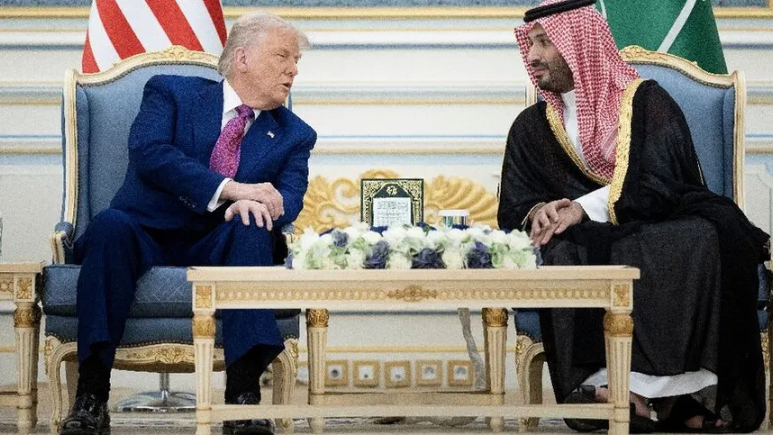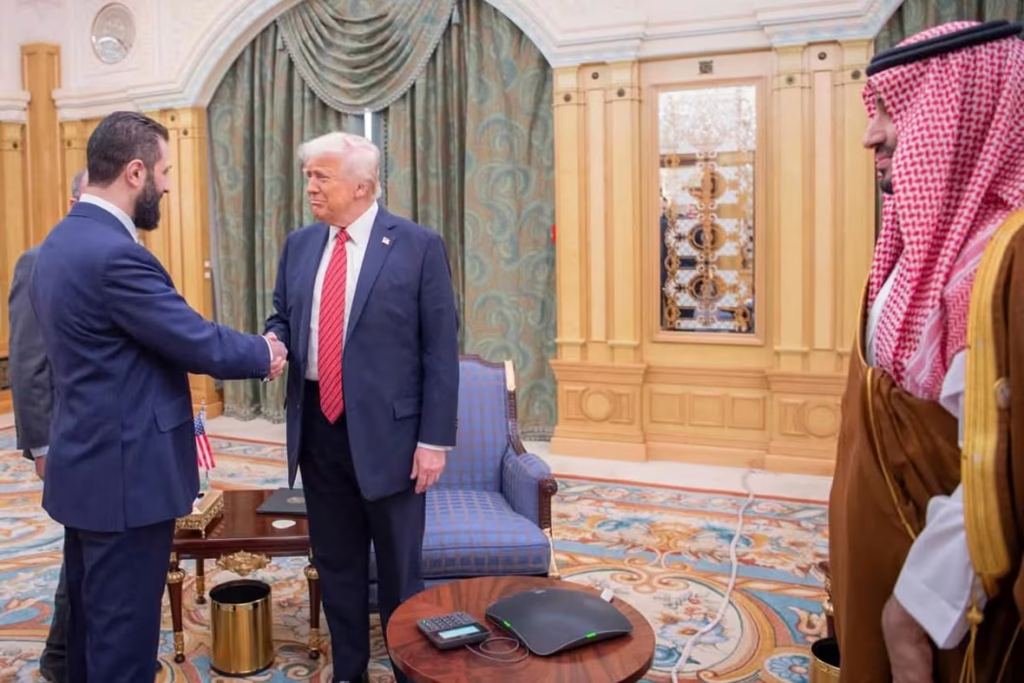Trump Saudi Crown Prince meeting 2025. The White House pushes forward an F35 fighter jet sale and large scale investment partnerships as Washington and Riyadh attempt to redefine strategic and economic cooperation.
A High Stakes White House Visit Focused on Security and Investment
Saudi Crown Prince Mohammed bin Salman’s return to Washington marked one of the most anticipated diplomatic moments of the year. The visit featured a prominent White House ceremony and a detailed agenda that centered on advanced fighter jets, technology partnerships, and energy cooperation.
For the Crown Prince, this is his first appearance in the United States since 2018. For President Donald Trump, the moment serves as an opportunity to reshape the future of US Saudi cooperation at a time when both sides face shifting regional dynamics, economic pressure, and new security threats.
Reports from both governments highlighted the meeting as a turning point for bilateral relations. Flags of both nations lined the White House lawn and officials on both sides described the atmosphere as warm and strategically important.
Trump Pushes Ahead with F35 Sale to Saudi Arabia
President Trump confirmed his intention to approve the sale of Lockheed Martin F35 fighter jets to Saudi Arabia. This single transaction could exceed 40 billion dollars and would position Riyadh among a very small group of nations with access to the most advanced stealth aircraft available from the United States.
Key points from the defense discussions:
• Saudi Arabia would become the second Arab state after the United Arab Emirates to operate the aircraft.
• The package includes training programs, maintenance support, and long term logistical cooperation.
• Approval will still require Congressional review and a set of strict technology protection guarantees.
US defense officials have expressed caution about the transfer of sensitive components. The administration stated that safeguards will be incorporated to prevent unintended access by rival states such as China.
Supporters of the deal argue that it strengthens deterrence against Iran and opens new operational capability for both nations.
Expanding Economic Partnership: AI, Energy, Digital Infrastructure
The meeting also served as a platform for the US Saudi Investment Forum. Riyadh outlined a multi year commitment that could reach 600 billion dollars in American based projects.
These commitments include:
• Large scale investment in artificial intelligence centers and data infrastructure
• Joint ventures in clean hydrogen, renewable power, and grid modernization
• Collaboration on advanced biotech programs and semiconductor manufacturing
• New partnerships in the electric vehicle and digital technology sectors
Officials from both sides stressed that the economic agenda is now a core component of the relationship. While defense cooperation remains important, the shift toward diversified, technology driven business ties indicates a broader long term strategy.
The Abraham Accords Question and Regional Diplomacy
The ongoing discussions around Saudi participation in the Abraham Accords continued during the visit. The United States and Israel have pushed for formal normalization, seeing Saudi involvement as a major diplomatic win.
The Crown Prince reiterated that any decision on normalization must be tied to clear movement on Palestinian rights and concrete steps toward a viable political solution.
With the conflict in Gaza still drawing global criticism and humanitarian concern, public progress on diplomacy remains difficult. Behind the scenes, however, American and Saudi officials appear committed to maintaining dialogue.
Criticism and Political Scrutiny Inside the United States
The meeting has triggered renewed debate within Washington. Legislators from both parties are demanding careful review of the F35 sale. Concerns involve the kingdom’s human rights record, the murder of journalist Jamal Khashoggi, and internal crackdowns within Saudi Arabia.
Several US lawmakers argue that providing advanced weaponry without stronger accountability measures could draw the United States deeper into Middle Eastern conflicts.
Ethics concerns have also resurfaced due to the Trump family’s business interests in Saudi Arabia, particularly real estate and hospitality deals that overlap with ongoing diplomatic engagement.
Oversight committees are expected to request detailed briefings before any final approval of the fighter jet sale.
What This Means for the Future of US Saudi Relations
The meeting signals the possible beginning of a new chapter driven by defense cooperation, investment flows, and shared goals in the digital and energy sectors.
Important questions now shape the road ahead:
• Will Congress approve the F35 sale despite political resistance and security concerns
• Can Saudi Arabia use closer ties with Washington to elevate its regional influence and support its Vision 2030 economic transformation
• Will economic incentives and security guarantees eventually pave the way for Saudi involvement in the Abraham Accords For now, the meeting reflects a highly transactional and business centered approach. The coming months will determine whether these ambitious agreements translate into lasting policy or face obstacles from political pressure, global tensions, and public accountability demands.


